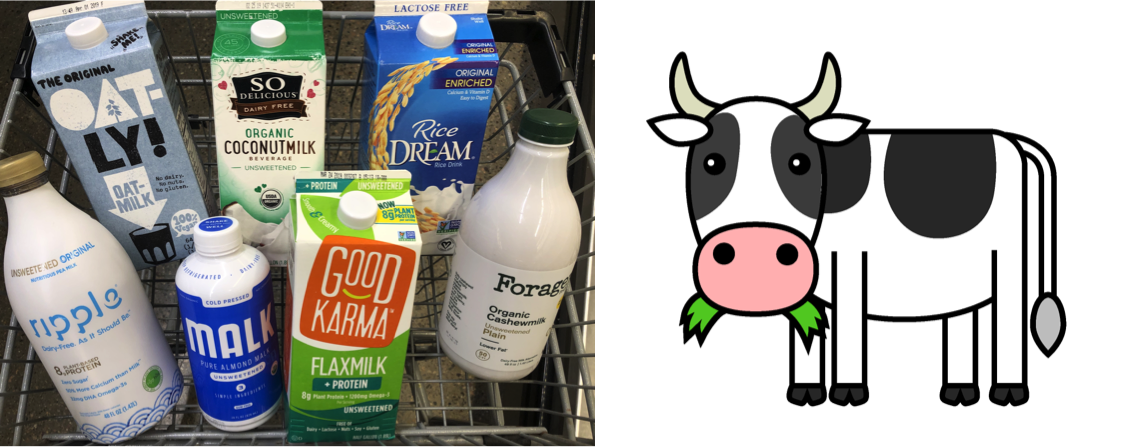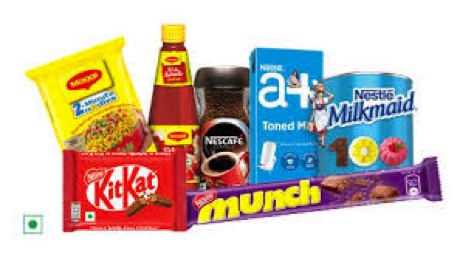World Milk Day is observed on June 1 every year. It was established by the Food and Agriculture Organization (FAO) of the United Nations to recognise the importance of milk as a global food. Apart from cattle, camel’s milk and donkey’s milk are on the supermarket shelves.
With the increasing alertness regarding shortfalls of lactose intolerance, mindful people are orchestrating the changes by opting for plant-based milk also known as eco-friendly milk. Awareness about the advantages of plant-based products is also on the rise. Consumers have become more conscious of the detrimental effects of animal farming on animal health and the environment. This has led to a shift in consumer preferences towards dairy alternatives, which are perceived as ethical, sustainable, and cruelty-free alternatives.
Nutritious option
Nevertheless, the footprint of the dairy sector lingers among the masses as the belief that only animal milk and its products can be the source of Vitamin D, calcium and protein. Debunking the idea Mumbai-based Nutritionist Varsha Solanki, observes, “As a matter of fact, plant-based milk has equal, and sometimes more, calcium, protein, sodium and potassium vis-a-vis cow’s milk. And it comes devoid of cholesterol, allergies, hormones and antibiotics. They are fortified with Vitamin B12 too.”
For vegans, who have chucked dairy, the vivid cartons on store shelves vie with each other to offer the most sustainable milk substitute. Their nutritional profile and distinct taste differ from each other. Top up your morning cuppa, boost your cereal, or cheer up your mood with an ice-cream — sustainable and healthy choice to help the planet, without compromising on taste.
By products
Can paneer, yoghurt, and butter be obtained from plant-based milk? “Yes,” answers Rithwik Ramesh, Co-Founder of Alt Co., and adds, “the key types of dairy alternatives include milk, butter, yogurt, cheese, and others. The ‘others’ category encompasses a range of products such as ice cream, cream, tofu, and smoothies. These are gaining popularity as consumers embrace the diversity and versatility of plant-based alternatives.” This escalates the food alternatives for those who are previously allergic to dairy products.
Price-wise
Plant-based milk is more expensive because of processes, packaging and the need for constant innovation and marketing in the segment. As disposable incomes rise, consumers are seeking healthier and more sustainable alternatives to traditional dairy products.
Speaking about the awareness and demand of alternative milk products, Basan Patil, Co-Founder of Alt Co., points out, “India’s plant based industry is still at a nascent stage but is undergoing a significant transformation driven by a growing consumer demand for sustainable and plant-based options. As more individuals adopt healthier and environmentally conscious lifestyles, the market for alternative dairy products witnesses remarkable growth.”
Adding spokesperson at Urban Platter, points out, “India’s plant-based industry is still at a burgeoning phase but is experiencing a remarkable revolution steered by an emergent consumer demand for sustainable and plant-based options. With more people getting mindful to embrace better and ecologically conscious lifestyles, the demand for alternative dairy products witnesses commendable progress.”
(Please note: All plant milks do not contain vital nutrients like protein, potassium and Vitamin D. Hence, the store-bought ones are fortified. They have to be consumed in moderation.)
Different types of milk
Soy milk: With a mild and creamy flavour profile it comes close to tasting like milk. It contains isoflavones known for anti-carcinogenic properties.
Oat milk: Tastes like your cereal bowl. It helps lower blood pressure and cholesterol. If your criteria is sustainability, oat milk is a better choice than almond milk.
Pea milk: Creamy and sweet, it is made from yellow split peas, high in protein and contains about half the calories of whole milk (if unsweetened), and paltry saturated fat.
Cashew milk: Has several minerals and vitamins and is low in calories. It contains antioxidants and regular intake aids in healthy aging and cognitive function.
Coconut milk: Creates electrolyte balance, is anti-inflammatory and prevents gut-related ailments like Irritable Bowel Syndrome. Has a sweet, nutty, salty flavour.
Rice milk: Nice and plain in taste, has a runny consistency. Not a healthy option for diabetics since it has less calcium and protein but a higher carbohydrate percentage. Recommended for athletes as it increases energy metabolism.
Hemp milk: Not for all, its beany-nutty taste is an acquired one. Packed with Omega-3 fatty acids, it is also high in polyunsaturated fats that helps to reduce cholesterol levels.
Flax milk: Loaded with fibre, is a source of alpha linoleic acids that help lower cholesterol and reverse hardening of blood vessels. Reduces risk of heart disease and strokes. It contains oestrogen-balancing lignans, women should consult the doctor before consuming. With nutty and bitter hints, it has an earthy flavour.
Potato milk: The newest non-dairy milk, still not commercially available in India (it can be made at home), it is known to have a smooth mouthfeel due to its starch with a slight potato flavour. Gluten-free and low in calories contains a fair amount of calcium.
Almond milk: With a nutty flavour, Vitamin E is its strength. Unsweetened version is low in sugar and carbs






























